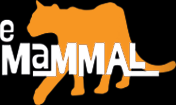Seattle Urban Carnivore Project
The Seattle Urban Carnivore project is a partnership between Woodland Park Zoo and Seattle University and aims to explore how mammalian carnivores live and interact with people across urban and suburban areas in the Seattle region. The project focuses on the following species: black bear, bobcat, cougar, coyote, opossum, raccoon, and river otter. These are terrestrial (not marine) mammals in the taxonomic Order Carnivora (*except for opossums). Any (non-human) animals documented by the remote cameras in the project will, however, be included in the project data. We follow the Urban Wildlife Information Network (UWIN) protocol for “off-trail” scented camera stations, and we also incorporate an unscented, “on-trail” station protocol in most locations. The project consists of camera stations placed in parks and natural areas along two transects that span an urbanization gradient throughout the greater Seattle area, as well as some additional off-transect camera locations. For the UWIN protocol, cameras are installed, at minimum, for four weeks during a single month in each season (January in winter, April in spring, July in summer, and October in fall), but may be kept up throughout the year and checked monthly.
Caveats: We follow the Urban Wildlife Information Network (UWIN) protocol for “off-trail” scented camera stations, and we also incorporate an unscented, “on-trail” station protocol in most locations. The project consists of camera stations placed in parks and natural areas along two transects that span an urbanization gradient throughout the greater Seattle area, as well as some additional off-transect camera locations. For the UWIN protocol, cameras are installed, at minimum, for four weeks during a single month in each season (January in winter, April in spring, July in summer, and October in fall), but may be kept up throughout the year and checked monthly.
Caveats: We follow the Urban Wildlife Information Network (UWIN) protocol for “off-trail” scented camera stations, and we also incorporate an unscented, “on-trail” station protocol in most locations. The project consists of camera stations placed in parks and natural areas along two transects that span an urbanization gradient throughout the greater Seattle area, as well as some additional off-transect camera locations. For the UWIN protocol, cameras are installed, at minimum, for four weeks during a single month in each season (January in winter, April in spring, July in summer, and October in fall), but may be kept up throughout the year and checked monthly.









